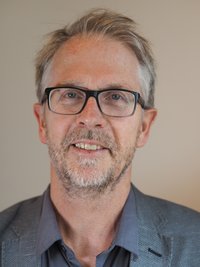ODIN invites researchers from Natural Sciences to open innovation with pharmaceutical companies
Aarhus University and a number of Danish and international drug manufacturers are working together in ground-breaking, open research collaboration, ODIN, which the Novo Nordisk Foundation is supporting with DKK 54.5 million (EUR 7.2 million). The project involves scientists from the three faculties Nat, Tech and Health, and data and results from the collaboration will be made available to everyone, openly and free of charge. The ambition of the project is to exploit collective knowledge from all the researchers participating in ODIN and, in the long term, to forge innovation to benefit patients, industry and society.


ODIN is an abbreviation of the Open Discovery Innovation Network, and in this context, ‘innovation’ covers both the way in which researchers and companies collaborate, and the results of their collaboration.
ODIN is a pilot project, and over the next three years it will be a free space in which the participating researchers and companies can collaborate without the restrictive framework of the patent rules.
They can do this by focusing their collaboration on the early phases of the development of new drugs, including identifying biomarkers, and they can generate shared knowledge that, although it may not be worth patenting, could become a building block in the development of future drugs. Another focus of the collaboration will be to understand how new drugs work at cell level.
The collaboration will lead to faster and more efficient pharmaceuticals innovation globally by forging a strong foundation of basic knowledge and tools that everyone can access: including competing companies.
Everyone is welcome
So far, the network consists of researchers from Natural Sciences, Technical Sciences and Health, as well as nine industrial partners, including Novo Nordisk, Leo Pharma, Lundbeck, Boehringer Ingelheim and Nordic Bioscience. However, any pharmaceutical company is welcome to sign up.
The DKK 54.5 mill. (EUR 7.2 mill.) from the Novo Nordisk Foundation will finance the administration of ODIN and the university's part of the research projects for three years. The companies will contribute knowledge, technology, and materials (such as screening libraries), for example, as well as knowledge about automation and so on.
"ODIN allows our researchers and businesses to collaborate on complex problems that they cannot handle on their own. The platform offers an opportunity to draw on many intellects from different disciplines and companies, so that we can quickly transfer methods known from a research field to new problems in another field, or find entirely new ways of examining 'old' challenges,” explains Marie Louise Conradsen, who is the head of open science at the Nat-Tech faculties and who is leading the ODIN project.
The researchers are employed at Aarhus University, not ODIN, and they are participating voluntarily because of their academic interest. However, participants will not be allowed to entirely run loose. A joint committee will assess each project before giving it the green light and funding. For example, projects must not only benefit individual businesses.
Marie Louise Conradsen is setting up a secretariat with three employees, and she has tentatively started a tour of departments at the three faculties to recruit researchers to the project.
Kjems is ready
Jørgen Kjems, who has been participating in the development of the ODIN concept, is ready to propose an open collaboration with a pharmaceutical company to find new biomarkers for a disease that is otherwise notoriously difficult to diagnose without unpleasant biopsies, and the biological function of the medicine.
Together with Henrik Birkedal and Victoria Birkedal, both from both the Department of Chemistry and iNANO, Jørgen Kjems helped to develop the ODIN concept.
“Today we know that the best way to understand the fundamental cause of illness is to study it from many different sides. In an open research environment such as ODIN, researchers can quickly draw on data from other sources and thus more quickly discover entirely new contexts and disease markers. This means better and faster diagnosis of diseases for patients. And by making all the results available to everyone, you do not have to elaborate on lengthy legal agreements before you can get started. This results in faster results, which ultimately also benefits patients,” says Jørgen Kjems.
Contact:
Marie Louise Conradsen, Head of Open Science
Mail: mlco@au.dk
Phone: 9350 8496
